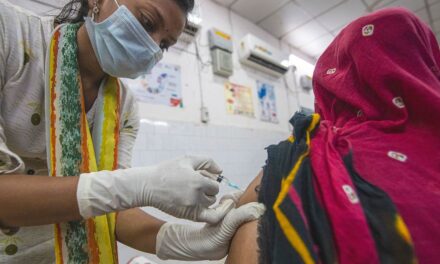New Delhi, February 3, 2025 – The Union Budget’s proposal to establish daycare cancer centres in every district over the next three years has been hailed as a timely and crucial initiative by healthcare experts. The move aims to bridge critical gaps in cancer treatment accessibility, particularly for patients in remote areas.
Cancer incidence in India has been rising steadily, with cases projected to increase by 27.7% from 2015 to 2025. According to the ‘National Cancer Registry Programme Report’ 2020, one in nine Indians is likely to develop cancer in their lifetime, highlighting the urgent need for enhanced oncology services across the country.
“The Budget move aims to improve access to cancer treatment and support, particularly in remote areas, bridging a critical gap in healthcare services,” said Ashok Varma, Partner at Grant Thornton Bharat. As part of this initiative, the Government will facilitate the setting up of 200 daycare cancer centres in the financial year 2025-26.
In addition to improving cancer care infrastructure, the Union Budget has also announced the inclusion of 36 life-saving drugs and medicines—primarily for cancer and rare diseases—to the list of medicines fully exempt from basic customs duty (BCD). An additional six life-saving drugs will attract a concessional customs duty of 5%.
Garima Malhotra, Associate Partner, Healthcare and Lifesciences at Praxis Global Alliance, welcomed these measures, emphasizing their role in expanding healthcare accessibility. “The establishment of daycare cancer centres in all district hospitals is a critical move towards enhancing accessibility to specialized treatment. These measures, along with continued investment in public health infrastructure, will improve healthcare access and affordability, fostering a healthier India,” she stated.
The Government’s focus on increasing access to life-saving medicines and treatments for rare diseases is expected to provide financial relief to many families. Moreover, the rationalization of customs tariffs on industrial goods, alongside incentives for domestic pharmaceutical manufacturing, will reinforce India’s position as the ‘Pharmacy of the World.’
Additionally, the Budget’s investment of Rs 20,000 crore in private-sector-led research and development (R&D) is expected to accelerate innovation in drug discovery and biotechnology, further strengthening the healthcare sector.
Experts believe that these initiatives, when effectively implemented, will significantly enhance India’s healthcare infrastructure, making specialized treatment more accessible and affordable for millions of people across the country.
Disclaimer: This article is based on publicly available information and expert opinions. Readers are advised to refer to official government sources for precise policy details and implementation updates.












